Our cookies
We use cookies for three reasons: to give you the best experience on PGS, to make sure the PGS ads you see on other sites are relevant , and to measure website usage. Some of these cookies are necessary to help the site work properly and can’t be switched off. Cookies also support us to provide our services for free, and by click on “Accept” below, you are agreeing to our use of cookies .You can manage your preferences now or at any time.

Privacy overview
We use cookies, which are small text files placed on your computer, to allow the site to work for you, improve your user experience, to provide us with information about how our site is used, and to deliver personalised ads which help fund our work and deliver our service to you for free.
The information does not usually directly identify you, but it can give you a more personalised web experience.
You can accept all, or else manage cookies individually. However, blocking some types of cookies may affect your experience of the site and the services we are able to offer.
You can change your cookies preference at any time by visiting our Cookies Notice page. Please remember to clear your browsing data and cookies when you change your cookies preferences. This will remove all cookies previously placed on your browser.
For more detailed information about the cookies we use, or how to clear your browser cookies data see our Cookies Notice
Manage consent preferences
Strictly necessary cookies
These cookies are necessary for the website to function and cannot be switched off in our systems.
They are essential for you to browse the website and use its features.
You can set your browser to block or alert you about these cookies, but some parts of the site will not then work. We can’t identify you from these cookies.
Functional cookies
These help us personalise our sites for you by remembering your preferences and settings. They may be set by us or by third party providers, whose services we have added to our pages. If you do not allow these cookies, then these services may not function properly.
Performance cookies
These cookies allow us to count visits and see where our traffic comes from, so we can measure and improve the performance of our site. They help us to know which pages are popular and see how visitors move around the site. The cookies cannot directly identify any individual users.
If you do not allow these cookies we will not know when you have visited our site and will not be able to improve its performance for you.
Marketing cookies
These cookies may be set through our site by social media services or our advertising partners. Social media cookies enable you to share our content with your friends and networks. They can track your browser across other sites and build up a profile of your interests. If you do not allow these cookies you may not be able to see or use the content sharing tools.
Advertising cookies may be used to build a profile of your interests and show you relevant adverts on other sites. They do not store directly personal information, but work by uniquely identifying your browser and internet device. If you do not allow these cookies, you will still see ads, but they won’t be tailored to your interests.
Course type
Qualification, university name, phd in london.
630 degrees at 42 universities in London.
Customise your search
Select the start date, qualification, and how you want to study

Related subjects:
- PhD Archaeology
- PhD Architecture
- PhD Biology and Life Sciences
- PhD Building, Planning and Construction Management
- PhD Chemistry
- PhD Communications and Media
- PhD Computer Science and Information Technology
- PhD Creative Arts and Design and Illustration
- PhD Economics
- PhD Education
- PhD Electronic and Electrical Engineering
- PhD Engineering
- PhD English Literature
- PhD Environmental Health and Safety, Protection and Conservation
- PhD Financial Management and Accounting
- PhD Food Science and Technology, Nutrition and Dietetics
- PhD Gallery, Conservation and Museum Studies and Museology
- PhD Geography and Earth Sciences
- PhD Health Care Management and Health Studies
- PhD History
- PhD Humanities and Social Sciences
- PhD Industry, Logistics, Manufacturing and Production
- PhD Journalism and Publishing
- PhD Languages
- PhD Law and Legal studies
- PhD Leisure, Hospitality Management and Event Management
- PhD Linguistic Studies
- PhD Literature
- PhD Management, Business and HR
- PhD Marketing and PR
- PhD Mathematics
- PhD Nursing and Midwifery
- PhD Other Sciences and Research
- PhD Performing and Dramatic Arts, Acting and Music Studies
- PhD Philosophy
- PhD Physics
- PhD Physiotherapy and other Therapies
- PhD Psychology
- PhD Religious Studies and Theology
- PhD Social Work, Community Work and Counselling Skills
- PhD Sports and Recreation
- PhD Surgery, Medicine and Dentistry
- PhD Teaching and Training
- PhD Tourism and Travel
- PhD Transport Services and Aviation

- Course title (A-Z)
- Course title (Z-A)
- Price: high - low
- Price: low - high
SOAS University of London
The School of Law accepts candidates for research work leading to a PhD. The central feature of PhD work is the close relationship Read more...
- 3 years Full time degree: £4,860 per year (UK)
- 6 years Part time degree: £2,430 per year (UK)
Philosophy PhD
Royal holloway, university of london.
About us The Philosophy programme at Royal Holloway offers a broad range of research supervision, with academic staff working both the Read more...
- 4 years Full time degree: £4,786 per year (UK)
Epidemiology and Population Health PhD
London school of hygiene & tropical medicine, university of london.
& Structure The MPhil and PhD are aimed at students who anticipate a career in which research plays a major role and who want to focus on Read more...
- 4 years Full time degree: £6,740 per year (UK)
- 8 years Part time degree: £3,370 per year (UK)
Human Sciences PhD
London south bank university.
A member of staff, expert in the chosen field, is directly responsible for guiding and supporting your research programme. As a research Read more...
- 6 years Distance without attendance degree: £4,820 per year (UK)
- 3 years Full time degree: £4,820 per year (UK)
- 5 years Part time degree: £2,892 per year (UK)
Business School MPhil/PhD
Middlesex university.
This programme will give you the opportunity to carry out cutting edge research that will help you understand the challenges of business Read more...
- 3 years Full time degree: £6,300 per year (UK)
- 6 years Part time degree: £3,150 per year (UK)
Psychology PhD
Birkbeck, university of london.
An PhD is an advanced postgraduate research degree that requires original research and the submission of a substantial dissertation of Read more...
- 4 years Full time degree
- 7 years Part time degree
Executive PhD
Bayes business school (formerly cass business school), city, university of london.
About the Executive PhD programme Today's business environment is fast moving, competitive and constantly changing. In order to survive Read more...
- 4 years Part time degree: £26,250 per year (UK)
Business PhD (Doctor of Philosophy)
Kingston university.
Whether you are planning a career in academia or as a professional researcher, our Business PhD will enable you to develop your skills Read more...
- 3 years Full time degree: £4,786 per year (UK)
Mphil Phd School of Business and Law
University of east london.
The School gives postgraduate research students the chance to learn from the best academic minds and industry experts. You’ll be studying Read more...
- 3 years Full time degree: £5,740 per year (UK)
- 5 years Part time degree: £2,870 per year (UK)
PhD Drama and Performance (Practice as Research)
University of essex.
Undertaking PhD study gives you the opportunity to engage with an area of drama, theatre, or performance in depth and at an advanced level. Read more...
- 7 years Part time degree: £2,393 per year (UK)
PhD Drama, Theatre and Performance
University of roehampton.
Research conducted in the School of Arts, Humanities, and Social Sciences covers a wide range of diverse and innovative arts practices, Read more...
- 4 years Full time degree: £4,711 per year (UK)
- 7 years Part time degree: £2,356 per year (UK)
Resource Efficient Future Cities PhD
Brunel university london.
Research profile The Resource Efficient Future Cities has current strengths in two streams of research energy use efficiency focuses on Read more...
- 6 years Part time degree: £2,393 per year (UK)
School of Slavonic and East European Studies MPhil/PhD
Ucl (university college london).
The MPhil/PhD programme at SSEES offers students the possibility to study in the heart of London and benefit from multi-disciplinary Read more...
- 3 years Full time degree: £6,035 per year (UK)
- 5 years Part time degree: £3,015 per year (UK)
PhD in Blizard Institute (Clinical)
Queen mary university of london.
The Faculty of Medicine and Dentistry was placed within the top seven UK institutions in all Units of Assessment – Clinical Medicine; Read more...
Ageing Research PhD
University of west london.
UWL is committed to advancing knowledge and innovation in research and education to improve the lives of older people in the UK and around Read more...
- 4 years Full time degree: £3,995 per year (UK)
- 6 years Part time degree: £2,000 per year (UK)
Doctor of Philosophy - MPhil / Phd
London metropolitan university.
A PhD is conducted purely by research. Each PhD is the unique development of your individual research project, performed under the Read more...
- 3 years Full time degree: £6,500 per year (UK)
- 4 years Part time degree: £3,250 per year (UK)
Politics PhD
We have more than 30 PhD students pursuing cutting-edge research, and undertaking advanced training, in the areas of new political Read more...
Public Health and Policy PhD
The PhD programme is closely linked to our growing and dynamic research culture. You'll benefit from engaging with highly qualified Read more...
Computer Science and Information Systems MPhil/PhD
- 4 years Full time degree: £4,712 per year (UK)
- 7 years Part time degree: £2,500 per year (UK)
1-20 of 630 courses
Course type:
- Distance learning PhD
- Full time PhD
- Part time PhD
Qualification:
Universities:.
- University of Greenwich
- Institute of Advanced Legal Studies, School of Advanced Study, University of London
- Royal College of Music
- Warburg Institute, School of Advanced Study, University of London
- London School of Theology
- King's College London, University of London
- Royal College of Art
- Imperial College Business School
- London Film School
- Courtauld Institute of Art, University of London
- London School of Economics and Political Science, University of London
- Imperial College London
- Amity University [IN] London
- Hult International Business School
- Institute of English Studies, School of Advanced Study, University of London
- Institute of Cancer Research, University of London
- University of London Worldwide
- Institute of Commonwealth Studies, School of Advanced Study, University of London
- Architectural Association School Of Architecture
- London School of Commerce
Related Subjects:
Browser does not support script.
- Student profiles
- Field trips
- Master's
- Undergraduate
- Student life

PhD programmes
Lse is one of the world's leading social science research and teaching centres. student life at lse is cosmopolitan and challenging. we're set at the heart of a major city and surrounded by some of the best facilities for studying to be found anywhere in the world..
World class research in economic, urban & development geography, environmental social science & climate change
We produce world-class research in economic, urban and development geography, environmental social science, and climate change.
As a PhD student, you'll operate at the highest academic level, and benefit from being at the forefront of research in your chosen field.
What can I study?
We offer five PhD programmes:
- MPhil/PhD Economic Geography
- MPhil/PhD Environmental Economics
- MPhil/PhD Environmental Policy and Development
- MPhil/PhD Human Geography and Urban Studies
- MPhil/PhD Regional and Urban Planning Studies
We also offer the following Visiting Research Student programmes:
- Visiting Research Student in Environmental Policy and Development
- Visiting Research Student in Economic Geography
- Visiting Research Student in Environmental Economics
- Visiting Research Student in Human Geography and Urban Studies
- Visiting Research Student in Regional and Urban Planning
What funding is available?
Funding is available from a variety of LSE-administered sources. For further information, visit our MPhil/PhD admissions frequently asked questions page .
PhD Job Market
See our PhD candidates currently on the job market .
PhD destinations
Click here to see where our PhD students work after graduating.
See our MPhil / PhD admissions frequently asked questions .
Telephone: +44 (0)20 7955 7587
Email: [email protected]
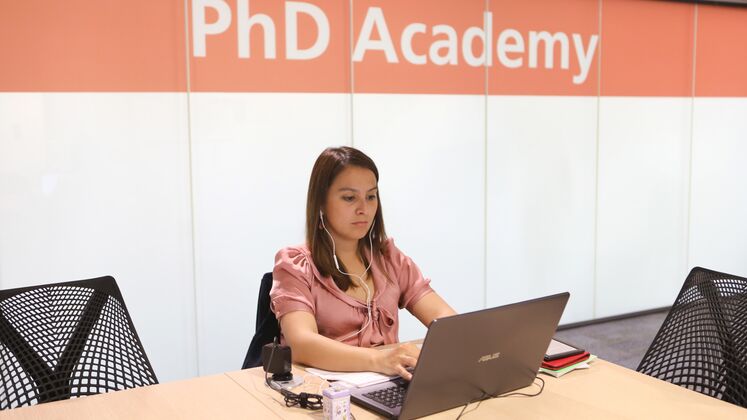
PhD Academy Find out more

Our research Find out more

PhD students Who's who

PhD/MPhil Psychology
Postgraduate research degree
The Psychology PhD/MPhil offers you the chance to develop a substantial and original body of new research involving the discovery of new facts or through the reformulation of existing frameworks.
Research centres and groups
- Clinical, Social and Cognitive Neuroscience
- The ASsuRED Project
Key information
| Starting date | Deadline for application |
|---|---|
| Oct 2024 1 October 2024 | Aug 2024 26 August 2024 |
| Feb 2025 1 February 2025 | Dec 2024 15 December 2024 |
Psychology Postgraduate research degrees PhD/MPhil course Overview
You will join an established department with a history of pioneering research. We have a commitment to the traditions of the discipline and a clear vision of good research practice in Psychology .
We support a vibrant community of researchers and provide expert supervision on a range of specialist subjects. Current strengths include cognitive neuroscience, decision making and behavioural economics. Formal modules in advanced research methods are available if needed to provide you with understanding needed to advance your research.
Our purpose-built facilities include:
- Two state-of-the-art electroencephalography laboratories
- A transcranial magnetic stimulation laboratories
- A baby laboratory
- Behavioural laboratories with access to eye-trackers
- Psychophysiological recording suites
- A psychometrics test library.
You and your research will become an integral part of our dynamic research culture.
About the programme
The PhD programme in Psychology is designed to develop your skills as an independent scholar and give you transferable skills for the years after you finish.
What follows is general indication of a student trajectory. It must be borne in mind that because this is a research degree, each student’s programme will be specific to them and the topic they are researching.
Depending on their existing qualifications and in discussion with their supervisor, in year one students may take one or more MSc level modules to furnish their core research methodological skills (see our Research Methods MSc) and subject-specific knowledge (see our MScs in Organisational Psychology, Behavioural Economics, Health Psychology and Clinical, Social and Cognitive Neuroscience).
The majority of time in Year 1 is spent formulating a research question and writing a literature review. Some students may also have begun data collection.
In year two students will finalise their literature review, finalise the overall shape of their thesis and carry out the bulk of their empirical and analytic work. Some may need to take one of several advanced level training courses that are available to build expertise in subject-specific research methodologies.
In year three students will conclude their empirical work and focus on writing up their thesis. They will also seek to disseminate their work in the form of peer-reviewed publications and/or conference presentations and identify opportunities for the next stage of their career.
We expect the majority of students to complete their write-up within a three-year period. However, a fourth year may be used for the final preparation and submission of the thesis and the completion of any amendments that may be requested.
MPhil award
It is important to note that all students on graduate research programmes are initially registered for an MPhil award. Promotion to registration to PhD is not automatic, but contingent on the satisfactory outcome of a formal review process some time in the second year of study.
- For the award of a psychology PHD candidates are required to demonstrate the following:
- a full understanding of previous research literature and current academic and professional thinking
- the ability to undertake sustained, high level research and master the theoretical (and where appropriate, practical) aspects of the subject areas relevant to the research field
- the ability to communicate the subject matter of the research field, and the conclusions of the particular research project, in the accepted academic form of a research thesis
For full details about the City psychology PhD programme structure, please see the Guide for Research Students .
Requirements
Applicants should demonstrate the following:.
- A track record of high academic achievement, demonstrated by a good undergraduate degree with at least a second class (upper division) pass or equivalent
- Good research methodological skills as demonstrated through relevant research experience and/or a good Masters level degree with at least a pass with merit (or equivalent)
- Excellent communication skills, both written and oral (see also the section on English language Requirements)
- Excellent planning and time-management skills.
English requirements
For students whose first language is not English, the following qualifications will meet the English language requirement for entry to a postgraduate course of study:
- A first degree from a UK university or from the CNAA.
- A first degree from an overseas institution recognised by City as providing adequate evidence of proficiency in the English language, for example, from institutions in Australia, Canada or the USA.
- GCE O-level/GCSE English language or English literature, grade C minimum.
- Cambridge ESOL CPE (Certificate of Proficiency in English) at grade C or above.
- An overall score of 7 in the English Language Testing System (IELTS) with a minimum of 7.0 in writing.
- Satisfactory standard in the verbal section of the Princeton Test (GMAT).
- US SAT with 500 in verbal performance.
- Warwick English Language Test (WELT) with pass grades of BBC minimum.
- Other evidence of proficiency in the English language which satisfies the Board of Studies concerned.
For more information see our main entry requirements page.
Visa requirements
If you are not from the European Economic Area / Switzerland and you are coming to study in the UK, you may need to apply for a visa or entry clearance to come to the UK to study.
The way that you apply may vary depending on the length of your course. There are different rules for:
- Students on courses of more than six months
- Students on courses of less than six months
- Students on a pre-sessional English language course.
For more information see our main Visa page .
Fees and funding
Full-time Home/UK: £5,000 per year
Part-time Home/UK: £2,500 per year
Full-time International: £13,500 per year
Part-time International: £6,750 per year
Fees for doctoral candidates are charged annually and cover registration, supervision and examination.
Fees are subject to review each year and may vary during your period of registration. Where applicable, fees for City's programmes will be subject to inflationary increases in each academic year of study commencing in September . Our policy for these increases is set out in our terms and conditions of study .
Where eligible, PhD applicants to the department of Psychology may apply for the following fee-waiver studentship:
Who we are looking for:
Applications are invited from exceptional UK, EU, and international graduates wishing to pursue cutting-edge research that will accelerate our understanding of a group of autistic individuals who are currently underrepresented in research. We are keen to receive applications from candidates who have experience with autistic individuals.
How to apply
For more information on how to apply please see the project overview please contact Dr Lúcia Garrido .
Support for PhD study
Prospective students are encouraged to explore doctoral Grants and funding opportunities such as:
- Research Council studentship awards , if available.
Our bursaries are non-repayable sums of money granted by the University, usually based on need.
Our loans are repayable sums of money granted by the University or other body.
Our scholarships are when the University pays towards your Study fees. You may also be eligible for further funding.
Postgraduate Doctoral Loans
The Government has introduced a new Postgraduate Doctoral Loans scheme which can provide a loan of up to £25,000.
This will be over three years to support study for a doctoral degree.
A Postgraduate Doctoral Loan can help with course fees and living costs while you study. It can be used alongside any other forms of support you may be able to receive.
For more information, please see our Postgraduate Doctoral Loans page .
Additional expenses
Some of our degrees may involve additional expenses which are not covered by your tuition fees. Find out more about additional expenses .
Academic support
City has a well-established structure and processes to support your research .

Supervision
All research students will have a supervisory team of at least two members of academic staff. At least one of them will have experience in seeing research students through to successful completion and both will be actively engaged in an area of research relevant to the student’s field of inquiry.
See here for details about our academic staff and their areas of expertise .
Besides our MSc level courses the department also offers a number of advanced level training workshops for specific research methodological skills. Moreover, wider transferable skills are developed through provisions within the department and through the City Doctoral College .
Current workshops include:
- Health and Safety in Cognitive and Clinical Neuroscience A induction on ethical and health and safety issues related to cognitive neuroscience methods. Convenors: Dr. Elliot Freeman, Dr. Kielan Yarrow and Dr. Sebastian Gaigg
- Electroencephalography This full-day workshop in one of the department’s EEG laboratories will teach students how to prepare participants for testing and collecting. This full-day workshop in one of the department’s EEG laboratories will teach students how to prepare participants for testing and collecting. Convenors: Prof. Bettina Forster, Dr. Corinna Haenschel and Dr. Beatriz Calvo-Merino
- Transcranial Magnetic Stimulation (TMS) and Transcranial electrical stimulation (TES) On this full-day workshop students will learn how to prepare participants for testing, how to collect data and how to filter Convenors: Dr. Kielan Yarrow and Dr. Elliot Freeman
- Randomised Controlled Trials Randomised controlled trials (RCTs) are used to obtain a reliable evaluation of treatment effectiveness in healthcare interventions. This workshop will provide an introduction to the design, analysis and reporting of RCTs. Convenor: Dr. Katy Tapper
- Discourse Analysis This course will provide training in the use of discourse analytic methods of data analysis which can be used to develop a systematic understanding of the ways in which talk and text are constructed. Convenor: Prof. Carla Willig Dates: Friday in the autumn term
- Interpretative Phenomenological Analysis (IPA) This workshop will discuss main philosophical and epistemological positions of the methodology together with a brief historical account concluding with a discussion between IPA’s phenomenology and Neurophenomenology. Convenor: Dr. Pavlos Filippopoulos
Transferable Skills
To foster our students’ broader academic and communication skills, they are required to attend a fortnightly research student seminar at which they are expected to present on their work at least once a year.
The seminar takes the format of an oral conference session in which two students typically present for 20 minutes, with 10 minutes allowed for questions and discussion.
Depending on their level of experience, they may help run small-group seminars or contribute to lectures on our undergraduate programme, or they may host stats clinics and run laboratory sessions on statistical analyses. All teaching activities are supervised by a senior member of academic staff.
Applications are now open.
To apply, you should submit the following documents:
- One copy of the Online Research Degree Application Form (full-time) or Online Research Degree Application Form (part-time)
- Your research proposal
- Testimonials from at least two academic referees sent by email from an official work (not private) email account
- Copies of your degree transcripts and certificates (originals or certified copies). If your application is successful we will need to verify the original hard copies before a final offer is made
- Proof of your English language proficiency (if English is not your first language)
- A non-technical summary of the proposed research of no more than 400 words.
See guidance on writing your research proposal .
Please note that we will not consider incomplete applications.
Instructions to referees
Thank you for your contribution to our admissions process, reports from academic referees are a vital part of our information gathering about applicants for Research Degrees. In your testimonial, please focus your report on the following issues:
- Give evidence of the applicant's capacity to undertake high quality research in psychology
- Explain any particular features of the applicant's prior training that you consider to be of particular importance
- Comment on the applicant's determination and motivation for studying for a research degree
- Indicate whether or not the applicant has discussed their research interests with you prior to applying to City
- Comment on the applicant's honesty and integrity.
Select one of the available starting dates to start your application.
- 1 st Oct 2024
- 1 st Feb 2025
For further application enquiries please contact our PGR enquiries team .
Find a supervisor
See our full list of academic staff and potential supervisors in Department of Psychology.
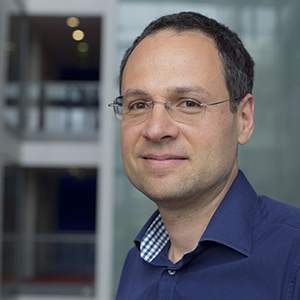
Professor Emmanuel Pothos
Professor of Psychology
- Department of Psychology
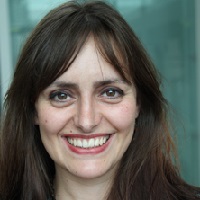
Professor Beatriz Calvo Merino
Professor in Cognitive Neuroscience
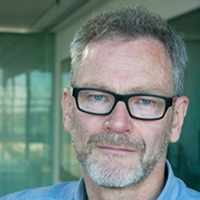
Professor Dermot Bowler
Dr andreas jarvstad.
Senior Lecturer
Our students
Sonia abad hernando.
Research Student
Useful links
- Doctoral College
- School of Health & Psychological Sciences
- Student wellbeing
- Terms and conditions
Contact details
Shps doctoral enquiries.
+44 (0) 20 7040 5972
City Doctoral College
Browser does not support script.
King's College London - Homepage
- Undergraduate
- Postgraduate
- International Students
- Study abroad
- Professional Education
- Short courses
- International Foundation
- Accommodation
- Visit King's
- Learning & teaching
- Language Centre
- Student Services Online
- Libraries & Collections
- Student news
- Careers & Employability
- Students' Union
- Academic calendar
- King's Sport
- Research at King's
- King's Health Partners
- Arts & Humanities
- Dentistry, Oral & Craniofacial Sciences
- Life Sciences & Medicine
- Natural, Mathematical & Engineering Sciences
- Nursing, Midwifery & Palliative Care
- Psychiatry, Psychology & Neuroscience
- Social Science & Public Policy
- Alumni Community
- Alumni benefits
- Events & reunions
- News & features
- Mission & strategy
- Internationalisation
- Governance & Legal
- Organisational structure
- Work at King's
- Diversity & Inclusion
- Financial information
MPhil/PhD Programmes
There are over 400 research students at the Institute who come from a range of backgrounds including psychology, psychiatry, nursing, social work and basic sciences.
Our MPhil/PhD programme allows students to carry out research in any of our 14 departments and in a wide variety of areas; from molecular genetics and biology, to neuroscience, neuroimaging, clinical research studies, psychological studies and new treatments; from longitudinal studies to clinical trials, bio statistics, epidemiology and health services research and transcultural studies.
Please see their departmental webpages and online prospectus entries to see research options/areas currently being undertaken:
|
|
|
|
|
|
Is a PhD for me?
Our PhD students come from a variety of backgrounds, with a variety of qualifications and experience. Take a look at the following information and recent/current student profiles, to find out whether a PhD is right for you:
King's College London says:
- All candidates should usually possess the normal minimum entry qualifications for registration prescribed in the King’s Core Code of Practice for Postgraduate Research Degrees . This is normally a 2:1 in a relevant field.
- Candidates should possess an adequate level of English competence. Candidates for whom English is not the first language will be required to provide proof that they possess an adequate level of English competence . The minimum level accepted is an IELTS score of 6.5. Grade C or above in GCSE English is also acceptable. Candidates must also satisfy their appointment panel of their competence.
The Institute of Psychiatry, Psychology & Neuroscience (IoPPN) says:
- It is useful to have a Masters degree, or related work experience in your chosen area of interest.
EU and International students should check the list of equivalent grades for international qualifications . Please contact the Health Schools Admissions Centre for further enquiries.
If you wish to study full time:
- You will be expected to submit your thesis within 3 years.
- You are permitted to work part time, but students are expected to work on their PhD for 35 hours a week and we encourage any part time work to be agreed with your supervisors.
If you wish to study part time:
- You will be expected to submit your thesis within 6 years.
- You are allowed to submit your thesis early (as early as 4 years) but this must be agreed with your supervisors and other conditions apply. Please contact the Postgraduate Research Team for more information.
The current fees for the 2022/2023 academic year are:
- Full time Home = £7,050 per year
- Full time Overseas = £26,640 per year
- Part time Home = £3,525 per year
- Part time Overseas = £13,320 per year
If you are a member of staff at the IoPPN you may be eligible for a discount on fees. Please contact the Postgraduate Research Team for more information.
Please note that tuition fees are subject to an annual increase of up to 5%. For more information, see the Fees webpage.
Students can start in either October (when most students start), February or June.
Students who are being funded by an external source should check whether there are any limitations on start dates.
If you are not able to self fund your PhD studies, then you will need to find funding from another source.
The IoPPN offers a number of full time studentships on an annual basis, funded by the Institute itself, and partly by the Medical Research Council. These studentships offer students full payment of tuition fees for 3 years and a monthly tax free stipend for living. These studentships are for set projects.
Individual academics and departments also offer full time fully funded studentships, on an ad hoc basis, if they receive funding themselves. These are also usually for set projects.
All funded studentships are advertised on our Studentships webpage.
If you have your own project in mind and would like to find funding, browse these links:
- Centre for Doctoral Studies Funding Database
- Research & Development Office
- Research grants office
- Medical Research Council
- Economic and Social Research Council
- British Council
- Government Loans
For more information on funding at Kings, please see the Funding webpage.
Student Profiles

Students take classes together in their first year and all have offices on the same floor, which makes it a very social and friendly place to study. It also means that students researching different areas of psychiatry, psychology, neuroimaging, and genetics are in constant contact, which helps to broaden your exposure to research.
Students and staff alike are always keen to get involved in collaborative projects, whether small or large, allowing students to explore areas of interest outside those strictly relevant to their PhD.
The PhD itself is usually very independent, driven by the student's own ideas and interests. These collaborations often also extend beyond the Centre, allowing for research and conference opportunities abroad.
All in all, it's a great place to be!

I wanted to understand how pioneering brain imaging could lead to new ways for diagnosing the condition, and as a result, I applied for a PhD with Dr Andy Simmons at the Department of Neuroimaging.
As a PhD student, the Institute has provided outstanding research facilities for postgraduate education and the provision of college organised training courses for personal development and teaching has been fantastic.
I have enjoyed this experience so far, and benefited from excellent supervision in a friendly and stimulating research environment.

The IoPPN has great research facilities and I'm really pleased that I have had the chance to study here.
With Psychosis Studies being one of the larger departments at the IoPPN, I've found there are always lots of opportunities to attend relevant talks and seminars, including weekly Psychosis Studies meetings with internal and external speakers.
I am really enjoying being a student here and one of the best things is that you can create your own opportunities. I set up a problem-based learning group to help students gain a greater understanding of magnetic resonance imaging, including the physics and basic analysis. They have been really well attended and the group has grown considerably since it was first stated. I have also had the opportunity to be the student representative for Psychosis Studies and be a mentor to some MSc students too.
When I graduate, I would like to continue working in research as a post doc, working my way up the academic ladder to professor.
The Next Steps
- The Application Process
- Funded PhDs
- Contact the Postgraduate Research Team
- LISS CASE funded PhD studentship
- Our research
- Our connections
- Diversity & inclusion

© 2024 King's College London | Strand | London WC2R 2LS | England | United Kingdom | Tel +44 (0)20 7836 5454
Please enable JavaScript in your web browser to get the best experience.
- Find a course
- Undergraduate study
- Postgraduate study
- Research degrees
- Short courses
- MOOCs - free short courses
- Why study with us
- Where to study
- Online learning
- Study with a local teaching centre
- Study in Paris
- Study humanities in London
- Fees and funding
- Costs of your course
- Funding your study
- How to pay your fees
- How to apply
- Undergraduate applications
- Postgraduate applications
- Help with your application
- Entry routes
- Am I qualified?
- English requirements
- Computer requirements
- Recognition of prior learning
- Supplying evidence
- What happens next?
- Transferring from another institution
- Student terms and conditions
- Inclusive practice and access
- Worldwide education delivered locally
- Register your interest
- Student Stories
- Taster courses for schools
- Current students
- Student portal
- Student blog
- Student services
- Accommodation in London
- Library services
- BLOOM @ Senate House
- Requesting a transcript or certificate
- Support and wellbeing
- Clubs and societies
- Getting involved
- Careers service
- Recent graduates
- Working with alumni
- Working with academics
- Information for employers
- Examinations and assessment
- Assessment timetables
- Entry and deadlines
- Exam centres
- Exam entry and results dates
- Assessment offences
- Mitigating circumstances
- Academic regulations
- Policies and procedures
- Access and Participation Statement
- Refund and Compensation Policy
- Student Protection Plan
- Student guide
- The Student Charter
- Complaints and appeals
- Preparing to graduate
- After Graduation
- Past ceremonies
- Students of federation members
- Research & Engagement
- School of Advanced Study
- Institute in Paris
- London Research & Policy Partnership
- Libraries and collections
- Centre for Online and Distance Education
- University of London Press
- Our research
- Public engagement
- Fellowships
- Collaborate with us
- Our federation
- Our Chancellor
- Senior Executive Team
- Our history
- Our global reputation
- Equality, diversity and inclusion
- Our civic role
- Strategy 2020-25
- Research & public engagement
- Study with us
- What makes us unique
- Board of Trustees
- Collegiate Council
- Statutes and Ordinances
- Academic Regulations
- Honorary Awards
- Annual reports and financial statements
- Charitable status
- Doing business with us
- Trust Funds
- Core policies
- Academic quality assurance
- Research governance
- Student policies and procedures
- Our services
- Senate House Library
- Intercollegiate Halls
- The Careers Group
- Our research libraries
- Conference & event hire
- Private housing services
- Short stay accommodation
- University Merchandise
- Work for us
- Becoming a teaching centre
- Contact and find us
- News & Events
- Past events
- Student blogs
- The Student Insider magazine
- Alumni & Supporters
- Alumni ambassadors
- Your alumni community
- New graduates
- Get involved
- Keep in touch
- Request a transcript
- The Convocation Project
- Ways to give
- Areas to support
- Recognising our donors
- Your impact
- Contact the Development Office
What are you looking for?
Popular courses.
- BSc Business Administration
- BSc Computer Science
- BSc Psychology
- International Foundation Programme
- MSc Computer Science
- MSc Cyber Security
- MSc Professional Accountancy
Research degrees (PhD and MPhil)
Undertaking postgraduate research allows you to develop in-depth knowledge while making a meaningful contribution to your chosen field. The School of Advanced Study’s eight world-renowned institutes offer expertise in a broad range of humanities disciplines.
- Share this page on Facebook
- Share this page on X
- Share this page on LinkedIn
Choose between on-campus study or online PhD supervision from anywhere in the world.
However you study, you'll benefit from the School’s collaborative research environment, specialist resources, and opportunities to participate in an extensive programme of events.
What our students say
“My supervisors are experts in the fields that inform my research, and the Institute is home to influential research centres which bring together academics from all around the globe. The research culture promotes independent work while still receiving constant support and constructive feedback.”
Monja Stahlberger, Germany
PhD at the Institute of Languages, Cultures & Societies
“I chose this PhD programme because of the world-leading expertise offered by the academic staff, the availability of resources, and the series of lectures given by visiting academics and leading practitioners in the field of refugee studies.”
Dean Thompson, Australia
PhD at the Refugee Law Initiative
“The programme has furnished me with many skills, from interpersonal to technical, that will be very useful regardless of whether I choose to stay in academia or pursue a career in industry or in the public sector.”
Daniela Major, Portugal
PhD in Digital Humanities
PhD and MPhil degrees
Phd at the institute of classical studies, phd at the institute of advanced legal studies, phd at the centre for latin american and caribbean studies, phd at the institute in paris, phd at the institute of commonwealth studies, phd at the institute of english studies, phd at the institute of historical research, phd at the institute of languages, cultures and societies, phd at the warburg institute, phd digital humanities, phd digital humanities by practice.

Study at Cambridge
About the university, research at cambridge.
- Undergraduate courses
- Events and open days
- Fees and finance
- Postgraduate courses
- How to apply
- Postgraduate events
- Fees and funding
- International students
- Continuing education
- Executive and professional education
- Courses in education
- How the University and Colleges work
- Term dates and calendars
- Visiting the University
- Annual reports
- Equality and diversity
- A global university
- Public engagement
- Give to Cambridge
- For Cambridge students
- For our researchers
- Business and enterprise
- Colleges & departments
- Email & phone search
- Museums & collections
- Course Directory
- Qualification types
Doctor of Philosophy (PhD)
Postgraduate Study
- Why Cambridge overview
- Chat with our students
- Cambridge explained overview
- The supervision system
- Student life overview
- In and around Cambridge
- Leisure activities
- Student unions
- Music awards
- Student support overview
- Mental health and wellbeing
- Disabled students
- Accommodation
- Language tuition
- Skills training
- Support for refugees
- Courses overview
- Department directory
- Funded studentships
- Part-time study
- Research degrees
- Visiting students
- Finance overview
- Fees overview
- What is my fee status?
- Part-time fees
- Application fee
- Living costs
- Funding overview
- Funding search
- How to apply for funding
- University funding overview
- Research Councils (UKRI)
- External funding and loans overview
- Funding searches
- External scholarships
- Charities and the voluntary sector
- Funding for disabled students
- Widening participation in funding
- Colleges overview
- What is a College?
- Choosing a College
- Applying overview
- Before you apply
- Entry requirements
- Application deadlines
- How do I apply? overview
- Application fee overview
- Application fee waiver
- Life Science courses
- Terms and conditions
- Continuing students
- Disabled applicants
- Supporting documents overview
- Academic documents
- Finance documents
- Evidence of competence in English
- AI and postgraduate applications
- Terms and Conditions
- Applicant portal and self-service
- After you apply overview
- Confirmation of admission
- Student registry
- Previous criminal convictions
- Deferring an application
- Updating your personal details
- Appeals and Complaints
- Widening participation
- Postgraduate admissions fraud
- International overview
- Immigration overview
- ATAS overview
- Applying for an ATAS certificate
- Current Cambridge students
- International qualifications
- Competence in English overview
- What tests are accepted?
- International events
- International student views overview
- Akhila’s story
- Alex’s story
- Huijie’s story
- Kelsey’s story
- Nilesh’s story
- Get in touch!
- Events overview
- Upcoming events
- Postgraduate Open Days overview
- Discover Cambridge: Master’s and PhD Study webinars
- Virtual tour
- Research Internships
- How we use participant data
- Postgraduate Newsletter
The degree of Doctor of Philosophy (PhD) is the University's principal research degree for graduate students and is available in all faculties and departments.
A Cambridge PhD is intellectually demanding and you will need to have a high level of attainment and motivation to pursue this programme of advanced study and research.
In most faculties, a candidate is expected to have completed one year of postgraduate study, normally on a research preparation master's course, prior to starting a PhD.
Completion normally requires three or four years of full-time study, or at least five years of part-time study, including a probationary period.
Terms of research are normally consecutive and, for full-time students, require residency in Cambridge. Not all departments offer part-time research degrees.
Various routes to the PhD are possible and, if you are made an offer of admission, it will be made clear whether you are required to study for a master's degree or certificate in the first instance, or will be admitted directly to the probationary year for the PhD. You are registered for the PhD only after a satisfactory progress assessment at the end of the probationary year (five terms for part-time degrees). The assessment is designed also to focus your mind on the stages necessary for the completion of your research within the normal time limit and to address any structural problems that have arisen during the first year. Students must pass the first year assessment in order to continue their PhD study.
During your PhD, your effort will be focused on writing a dissertation. The word count of the dissertation is dependent on the department and the Student Registry or Educational Student Policy will be able to tell you the maximum word limit. This must represent a significant contribution to learning, for example through the discovery of new knowledge, the connection of previously unrelated facts, the development of a new theory, or the revision of older views, and must take account of previously published work on the subject. Some Cambridge dissertations go on to form the basis of significant publications.
Although you will spend long hours working independently, your department and College will both support you throughout your PhD. You are also able to attend regular seminars in your subject area and could be involved in teaching, perhaps giving seminars or supervising, or in the social life of your department and College.
PhD course search
Go to the Course Directory and filter courses using the relevant checkboxes.
Term Information
| Fee terms | 9 terms |
|---|---|
| Research terms | 9 terms |
| Thesis terms | 12 terms |
| Fee terms | 15 terms |
|---|---|
| Research terms | 15 terms |
| Thesis terms | 21 terms |
Explanation of terms
Postgraduate admissions office.
- Admissions Statistics
- Start an Application
- Applicant Self-Service
At a glance
- Bringing a family
- Current Postgraduates
- Cambridge Students' Union (SU)
University Policy and Guidelines
Privacy Policy
Information compliance
Equality and Diversity
Terms of Study
About this site
About our website
Privacy policy
© 2024 University of Cambridge
- Contact the University
- Accessibility
- Freedom of information
- Privacy policy and cookies
- Statement on Modern Slavery
- University A-Z
- Undergraduate
- Postgraduate
- Research news
- About research at Cambridge
- Spotlight on...
We have 55 fully funded PhD Projects, Programmes & Scholarships for UK Students in London
All disciplines
London United Kingdom
Institution
All Institutions
All PhD Types
I am a UK student
fully funded PhD Projects, Programmes & Scholarships for UK Students in London
Epsrc cdt in bioprocess engineering leadership: complex biological products manufacture, funded phd programme (uk students only).
Some or all of the PhD opportunities in this programme have funding attached. It is only available to UK citizens or those who have been resident in the UK for a period of 3 years or more. Some projects, which are funded by charities or by the universities themselves may have more stringent restrictions.
EPSRC Centre for Doctoral Training
EPSRC Centres for Doctoral Training conduct research and training in priority areas funded by the UK Engineering and Physical Sciences Research Council. Potential PhD topics are usually defined in advance. Students may receive additional training and development opportunities as part of their programme.
EPSRC Centre for Doctoral Training in the Mathematics for our Future Climate: Theory, Data and Simulation
Funded phd programme (students worldwide).
Some or all of the PhD opportunities in this programme have funding attached. Applications for this programme are welcome from suitably qualified candidates worldwide. Funding may only be available to a limited set of nationalities and you should read the full programme details for further information.
HDR UK – Fully Funded Turing PhD Programme in Health Data Science
4 year phd programme.
4 Year PhD Programmes are extended PhD opportunities that involve more training and preparation. You will usually complete taught courses in your first year (sometimes equivalent to a Masters in your subject) before choosing and proposing your research project. You will then research and submit your thesis in the normal way.
Four Year PhD Programme in Epidemiology, Evolution and Control of Infectious Diseases
Phd projects in mathematics, maths research programme.
PhD Research Programmes describe the opportunities for postgraduate research within a University department. You may often be asked to submit your own research project proposal as part of your application, although predefined research projects may also be available.
Multiscale Models for Life (MM4L) Centre for Doctoral Training
Phd opportunities.
PhD Opportunities highlight some of the specific PhD projects, programmes or other information currently available from a university.
2x Fully Funded 3-Year PhD Studentships in the School of Public Health
Nihr funded.
This PhD is funded by the UK’s National Institute for Health Research (NIHR). NIHR provides funding in target research areas for projects and programmes delivered by partner universities.
Fully-funded EPSRC Centre for Doctoral Training in Green Industrial Futures
Phd: improving additive manufacturing productivity using correlative chemical and x-ray imaging (fully funded phd), phd research project.
PhD Research Projects are advertised opportunities to examine a pre-defined topic or answer a stated research question. Some projects may also provide scope for you to propose your own ideas and approaches.
Funded PhD Project (Students Worldwide)
This project has funding attached, subject to eligibility criteria. Applications for the project are welcome from all suitably qualified candidates, but its funding may be restricted to a limited set of nationalities. You should check the project and department details for more information.
Making Additive Manufacturing Sustainable Using Functionalised Coatings (Fully Funded PhD)
Funded phd project (uk students only).
This research project has funding attached. It is only available to UK citizens or those who have been resident in the UK for a period of 3 years or more. Some projects, which are funded by charities or by the universities themselves may have more stringent restrictions.
Theory and simulation of transport and ultrafast processes in quantum materials
Investigating the induction of trained innate immunity by bcg vaccination, and its role in modulating mycobacterium tuberculosis and sars-cov2 infection, using machine learning to predict cell-type specific effects of genetic variants which influence genome regulation, combustion studies of organogelated hydrocarbon fuels with electrical capacitance tomography for hybrid rocket engine development, competition funded phd project (students worldwide).
This project is in competition for funding with other projects. Usually the project which receives the best applicant will be successful. Unsuccessful projects may still go ahead as self-funded opportunities. Applications for the project are welcome from all suitably qualified candidates, but potential funding may be restricted to a limited set of nationalities. You should check the project and department details for more information.
FindAPhD. Copyright 2005-2024 All rights reserved.
Unknown ( change )
Have you got time to answer some quick questions about PhD study?
Select your nearest city
You haven’t completed your profile yet. To get the most out of FindAPhD, finish your profile and receive these benefits:
- Monthly chance to win one of ten £10 Amazon vouchers ; winners will be notified every month.*
- The latest PhD projects delivered straight to your inbox
- Access to our £6,000 scholarship competition
- Weekly newsletter with funding opportunities, research proposal tips and much more
- Early access to our physical and virtual postgraduate study fairs
Or begin browsing FindAPhD.com
or begin browsing FindAPhD.com
*Offer only available for the duration of your active subscription, and subject to change. You MUST claim your prize within 72 hours, if not we will redraw.

Do you want hassle-free information and advice?
Create your FindAPhD account and sign up to our newsletter:
- Find out about funding opportunities and application tips
- Receive weekly advice, student stories and the latest PhD news
- Hear about our upcoming study fairs
- Save your favourite projects, track enquiries and get personalised subject updates

Create your account
Looking to list your PhD opportunities? Log in here .
Filtering Results
Imperial College London Imperial College London
Latest news.

Great Exchanges: Imperial partners with local radio station to talk science

Students celebrate completing international research fellowships

Imperial celebrates Turkish alumni community in Istanbul
- Postgraduate doctoral
- Application process
- Choose a course
Integrated PhD
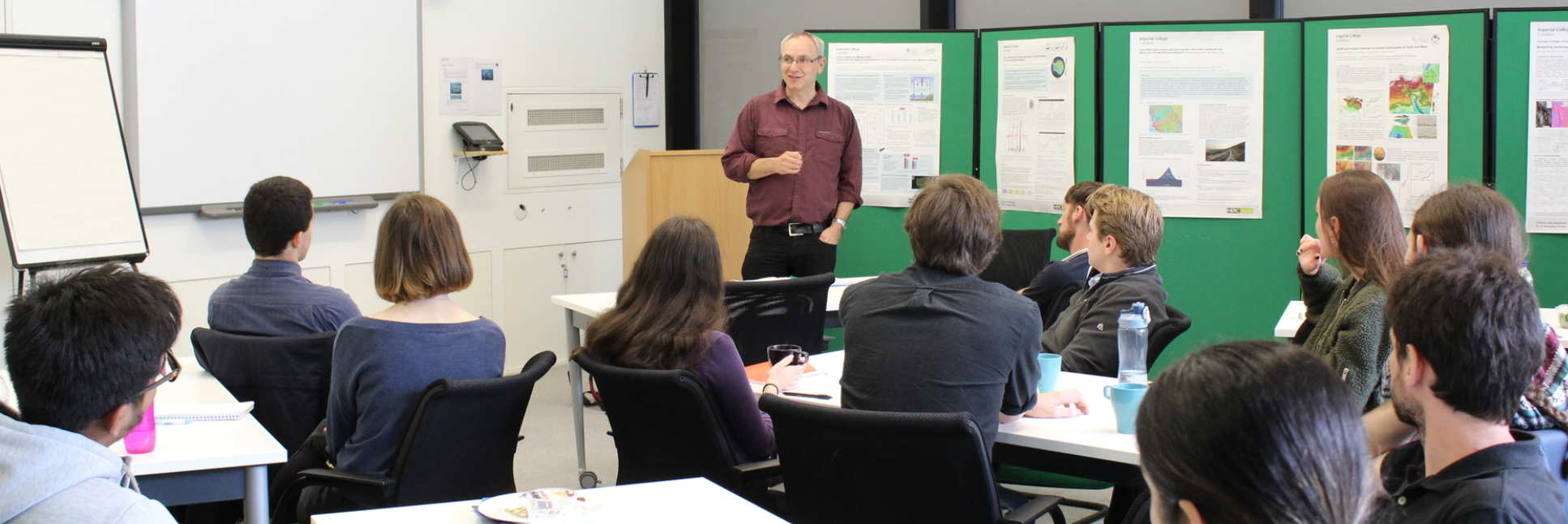
Studentships
Funding for our CDTs and DTPs is provided by Research Councils so eligibility criteria apply for the studentships that they offer. This is outlined on the UK Research and Innovation website . They may also consider self-funding applicants for non-funded projects.
A new model of Doctoral training
Integrated PhDs provide a new model of postgraduate training. They retain the depth, rigour and focus of a conventional PhD while also providing a broader training experience.
While the specific training routes may vary, they typically consist of a one-year Master's course (MSc or MRes) which leads straight into a three-year PhD.
This new style of doctoral training is available within our Research Council-funded Centres for Doctoral Training (CDTs) and Doctoral Training Partnerships (DTPs).
CDTs and DTPs
Our CDTs and DTPs recruit cohorts of students from a broad spectrum of disciplines, creating vibrant multi-disciplinary communities.
The diversity of students recruited to these centres reflects the breadth of research which they cover.
As well as benefitting from a variety of training opportunities and cohort-building activities, students studying within these centres may also have access to a supervisor and facilities at a partner institution.
Doctoral Training Partnerships (DTPs)
We offer the following DTPs:
- Science and Solutions for a Changing Planet , funded by the Natural Environment Research Council (NERC) and hosted by the Grantham Institute – Climate Change and the Environment.
- Medical Research Council Studentships – Imperial College Medical Research Council Doctoral Training Partnership (DTP) , funded by the Medical Research Council (MRC)
- Photonics , available through several EPSRC-funded Doctoral Training Partnerships (DTPs) in which Photonics research group members are involved.
Imperial is also a partner in London Interdisciplinary Social Science Doctoral Training Partnership (LISS) , funded by the Economic and Social Research Council (ESRC).
Centres for Doctoral Training (CDTs)
Imperial currently hosts the following Centres for Doctoral Training. Explore the centres that interest you to find out more about their training programme and available studentships.
- Advanced Characterisation of Materials
- Artificial Intelligence for Healthcare – UKRI Centre for Doctoral Training
- BioDesign Engineering
- Chemical Biology - Innovation for the Life Sciences
- Modern Statistics and Statistical Machine Learning
- Next Generation Synthesis and Reaction Technology
- Nuclear Energy Futures

Centre for Behaviour Change
- Consultancy
- CBC Conference
- Related Organisations

Developing more effective interventions to promote physical activity in pregnancy
Through applying behavioural theory, we will investigate whether programmes for promoting physical activity in pregnancy are designed to target the associated barriers and facilitators.

2 July 2024
PhD project
Title: Informing the development of behaviour change interventions which are theoretically congruent with the barriers to, and facilitators of, physical activity in pregnancy.
CBC Doctoral Student: Gemma Spickernell
CBC Supervisors: Professor Angel Charter , Dr Fabiana Lorencatto
Start date: 2023
Why this research is important
Physical activity has substantial benefits for women with uncomplicated pregnancies, minimal risks, and is recommended in national guidelines. Despite the well-documented benefits, studies have estimated that only 3–15% of pregnant women meet current physical activity guidelines in the UK. The perceived barriers to physical activity in pregnant and postpartum mothers are wide-ranging, extensive, and well-established. There are many interventions that have been implemented nationally with the aim of increasing physical activity in pregnancy, but the extent to which they target the barriers to, and facilitators of, physical activity is unclear. We will investigate this by applying behavioural theory and evidence-based tools to determine the match between the intervention, and the barriers to and facilitators of physical activity in pregnancy. To develop more effective programmes for promoting physical activity in pregnancy, it is critical that interventions include the components and characteristics most strongly associated with effectiveness.
Find out more
Email Gemma: [email protected]

IMAGES
VIDEO
COMMENTS
A PhD (Doctor of Philosophy) is the most common type of doctoral degree and the highest level of academic qualification you can achieve. It normally takes between three and four years of full-time work to complete. It is also possible to undertake a PhD part time, over five to six years. The main activity of a PhD is to carry out an original ...
Please contact us to learn more about the programme. +44 20 7000 8975. [email protected]. Select up to 4 programmes to compare. A PhD at London Business School sets you on the path to an excellent academic career and a faculty position at a world-class business school or university.
MPhil and PhD opportunities are available on-campus and by arrangement through our self-governing member institutions and research institutes, including the School of Advanced Study. Many of these institutions have performed highly in the Research Excellence Framework and are consistently ranked highly for research among UK universities.
Northeastern University London Faculty of History. Project start date. 1 October 2024. Supervisors (*lead). Lars Kjær* (Northeastern University London). Edward Roberts (University of Kent). Read more. Supervisors: Dr LK Kjær, Dr ER Roberts. 12 July 2024 PhD Research Project Funded PhD Project (Students Worldwide) More Details.
London Metropolitan University. (4) A PhD is conducted purely by research. Each PhD is the unique development of your individual research project, performed under the Read more... 3 years Full time degree: £6,500 per year (UK) 4 years Part time degree: £3,250 per year (UK) Apply now Visit website Request info. Compare.
Programme content. The Business School Master's in Research (MRes) is an integral part of the PhD, introducing theory and research methods in Finance, Economics and Management, providing you with a solid foundation for your doctoral studies. Depending on the research area you choose to specialise in, you will embark on a one or two-year MRes ...
As a PhD student, you'll operate at the highest academic level, and benefit from being at the forefront of research in your chosen field. ... London. WC2A 2AE UK . LSE is a private company limited by guarantee, registration number 70527. +44 (0)20 7405 7686. Campus map. Contact us. Report a page. Cookies.
Film Studies MPhil/PhD Faculty of Arts and Humanities | Centre for Multidisciplinary and Intercultural Inquiry UCL sits at the centre of the vibrant, multicultural and cinematic city of London. The university, which was the first to establish Film Studies in Britain, houses a thriving graduate research culture in the subject alongside ...
City Doctoral College. [email protected]. City, University of London Northampton Square London EC1V 0HB United Kingdom. The Psychology PhD/MPhil from City, University of London offers you the chance to develop a substantial and original body of new research involving the discovery of new facts.
The Doctor of Philosophy (PhD) is the most common type of Doctoral course, which normally takes three or four years of full-time study to complete. Part-time study is also an option. This type of doctoral training typically consists of a one-year Master's course (MSc or MRes) which leads straight ...
MPhil/PhD Programmes. There are over 400 research students at the Institute who come from a range of backgrounds including psychology, psychiatry, nursing, social work and basic sciences. Our MPhil/PhD programme allows students to carry out research in any of our 14 departments and in a wide variety of areas; from molecular genetics and biology ...
Our PhD programme aims to equip the next generation of experts with the necessary tools to address major 21st-century health challenges and deliver real-world impact. ... You will receive direct supervision from world-leading academics based on UCL's campus in the heart of London. All PhD students are supported by supervisory panels of ...
PhD Study. The UCL Division of Biosciences is one of the largest and most active research environments for basic biological and biomedical research in the UK. Research interests span the scales from molecules to organisms, including humans. We have particular Research strengths in structural and molecular biology, evolutionary biology, genetics ...
Here is a selection of some of the best places to be a PhD student in London: UCL (University College London) An academic powerhouse, UCL is the leading London university and 7 th best higher education establishment in the world ( QS World University Rankings 2015 ). Enviably located on a beautiful site in Bloomsbury - a stone's throw from ...
Final UK Wellcome health data science PhD Studentship available for Oct 2024. Explore PhD opportunities within the Institute for Digital Technologies. Exceptional research and doctoral training. 5-year funding available. Fully funded PhDs in Epidemiology, Evolution and Control of Infectious Diseases.
President's PhD scholarships. Receive full tuition fee funding and a generous stipend for a 3.5 year PhD at Imperial. There are 50 scholarships available each year. ... Living in London costs Our estimate of the average amount students can expect to pay for housing, meals, transport and personal expenses in London is designed to help you budget ...
The Research Lab at the London Business School is a full-staffed state of the art lab devoted to running behavioural research studies. The fully staffed lab is trained in running a wide variety of behavioural research studies ranging from simple survey to food tasting to social interaction studies. PhD students have full access to running ...
Undertaking postgraduate research allows you to develop in-depth knowledge while making a meaningful contribution to your chosen field. The School of Advanced Study's eight world-renowned institutes offer expertise in a broad range of humanities disciplines. Choose between on-campus study or online PhD supervision from anywhere in the world.
In most faculties, a candidate is expected to have completed one year of postgraduate study, normally on a research preparation master's course, prior to starting a PhD. Completion normally requires three or four years of full-time study, or at least five years of part-time study, including a probationary period.
Imperial College London Division of Medicine. Application Deadline: 15 July 2024. Fully funded studentships available for entry in October 2024. This 4-year PhD training programme provides unique inter-disciplinary training in infectious disease epidemiology, mathematical modelling and statistics, genetics and evolution, and computational methods.
Studying in London. London higher education is well-known for its industry focus in fields such as business administration (top international MBAs), economics, engineering, medical studies, information technology (IT&C), arts (drama schools), language studies, social sciences, and more. Over 30,000 diverse specialisations at all degree levels ...
Postgraduate doctoral admissions process. Applying as an international student may involve a few extra steps. Find out all you need below. Follow the steps below to apply for a postgraduate doctoral course. You may only be considered for a maximum of two courses in any one admission cycle - each will require a separate application.
A new model of Doctoral training. Integrated PhDs provide a new model of postgraduate training. They retain the depth, rigour and focus of a conventional PhD while also providing a broader training experience. While the specific training routes may vary, they typically consist of a one-year Master's course (MSc or MRes) which leads straight ...
McKendree University, Illinois' first and finest, is a private university in Lebanon, Ill., just 25 minutes from downtown St. Louis. The school has approximately 2,000 full-time students and offers both undergraduate and graduate school programs.
PhD project. Title: Informing the development of behaviour change interventions which are theoretically congruent with the barriers to, and facilitators of, physical activity in pregnancy. CBC Doctoral Student: Gemma Spickernell CBC Supervisors: Professor Angel Charter, Dr Fabiana Lorencatto Start date: 2023